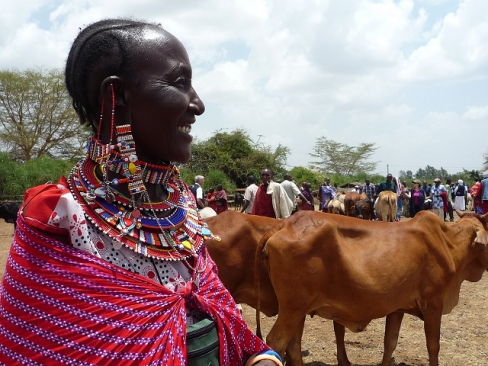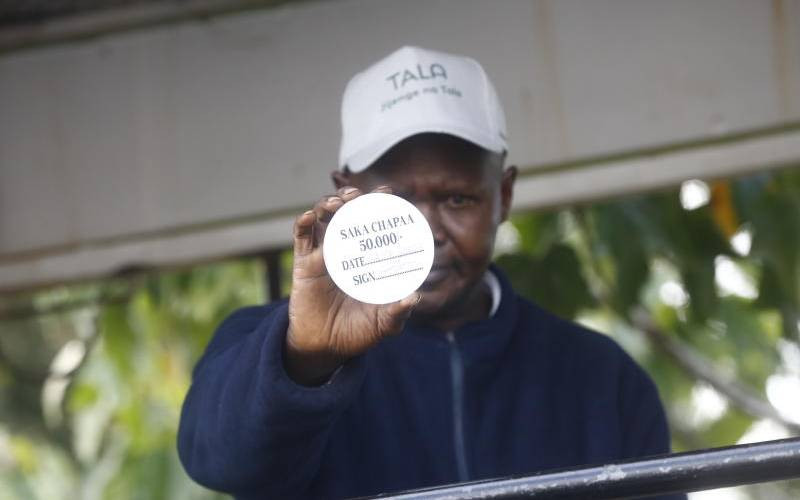
In Lokumkum, men skip “night duties” to guard livestock. Despite boasting a rare name that furthers God’s order to humans to fill and subdue the earth, Lokumkum area of Baringo South constituency is a living contradiction of that name.
In Tugen language, “Lokumkum” means the very act of procreation. But in Lokumkum, locals are now settling for an alternate name, Loitip.
In Ilchamus language, however, the same word (Lokumkum) applies to the sound hoofed animals make when walking about. The Ilchamus are the majority population here, but they are the minority in the tree of Kenyan communities. It does not take long to understand this Lokumkum conundrum. When we arrived for a National Cohesion and Integration Commission (NCIC) peace and reconciliation meeting, we found the venue deserted.
By the flowing Mara River and under tall fig trees, we sat down and waited as area administrators made frantic calls to village elders to flush out their people. Here, residents are used to being rallied to attend meetings by helicopters, but since we had come by road, we had to wait. Pupils of nearby Loitip Primary School were at hand to entertain as residents gradually trickled.
“When the night sets in we are filled by trepidation and anxiety,” one of the verses bemoaning the vagaries of insecurity in the area went.
An elder later confessed that when night falls, all men leave their manyattas and take their place in the outlying bushes to guard their livestock and loved ones against alleged Pokot or Tugen raiders. But it is the Pokots they worry about most.
“If you don’t sleep, how will you procreate like the rest of Kenyans and improve your population?” NCIC chair Francis ole Kaparo asked them, his deep baritone reverberating across the river below.
The men who spoke at the meeting painted a picture of victimhood: “Not a single time have we as Ilchamus ever raided the Tugens or Pokots. It is they who always come,” an elder said.
Another one: “We have no relationship with the Pokots at all. I am widowed myself, courtesy of the Pokots. We can talk peace here, under these trees, but I don’t think we can ever have peace with those people over there.”
The Ilchamus get on fairly well with the Tugens. When Kaparo sought to know whether they would cease any acts of aggression or war against Tugens, they all raised hands.
But when he sought to take along one of the elders to Pokot on a peace mission, the old man stood his ground: “Not me... unless I strip away all my earrings, necklaces and attire so that they do not recognise me.” The crowd roared in laughter.
In the nearby town of Sandai, largely populated by Tugens, residents were equally hesitant on peace with the Pokots. Acting Sub-County Commissioner Marigat Felix Kisalu says the peace between the Tugens and Ilchamus in Sindai was somehow forced on them. “We took very hard decisions. We even had to arrest leaders and Kenya Police Reservists from both sides,” Kisalu said at a meeting in Sindai.
In all meetings where Pokots were blamed, vilified and condemned, Rev Simon Lomering’ura Aleu, a Pokot from West Pokot County, sat quietly. In the Sandai meeting, however, he offered the lessons learned from return of peace in his region where he says the raiders “are reformed people operating motorbike taxis.”
When he grew up, he said, Pokot raids were restrained between them and Karamojongs. But the acquisition of guns turned the narrative as Pokot raiders grew more daring and bold. “A gun is like a brand new car. When you buy a car you want to drive it around aimlessly,” he said.
The message for both Tugens and Ilchamus was the same; make peace on your own terms before government sets on you. “When an operation is conducted in your area, I want to assure you no one is safe,” Aleu warned.
By the time we left the area, the Ilchamus and Tugens were resolute on two things; that the beef between them is not a big issue, and that the beef between them and Pokots will last sometime. Later when we were heading back to Marigat for the night, Amos Rono Ole Chesuswo, a Sengwer and a cultural analyst from Chereng’any, would remark to me: “They have no idea. With that attitude they, especially the Ilchamus, will be overrun by the Pokots. I pity the children and the women.”
 The Standard Group Plc is a multi-media organization with investments in media
platforms spanning newspaper print operations, television, radio broadcasting,
digital and online services. The Standard Group is recognized as a leading
multi-media house in Kenya with a key influence in matters of national and
international interest.
The Standard Group Plc is a multi-media organization with investments in media
platforms spanning newspaper print operations, television, radio broadcasting,
digital and online services. The Standard Group is recognized as a leading
multi-media house in Kenya with a key influence in matters of national and
international interest.
 The Standard Group Plc is a multi-media organization with investments in media
platforms spanning newspaper print operations, television, radio broadcasting,
digital and online services. The Standard Group is recognized as a leading
multi-media house in Kenya with a key influence in matters of national and
international interest.
The Standard Group Plc is a multi-media organization with investments in media
platforms spanning newspaper print operations, television, radio broadcasting,
digital and online services. The Standard Group is recognized as a leading
multi-media house in Kenya with a key influence in matters of national and
international interest.










